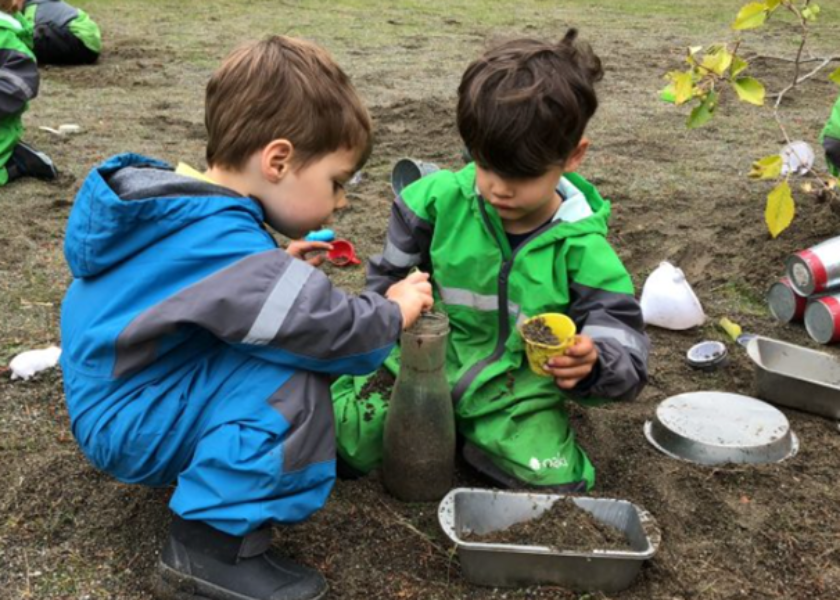
Educational and Fun Videos for Kids: Quality Screen Time with a Purpose
In the digital era, children have access to a vast array of entertainment options on screens, from cartoons and movies to games and social media. While concerns about excessive screen time are valid, not all screen time is created equal. Educational and fun videos for kids can offer a valuable and purposeful experience for kids, combining entertainment with learning. In this blog, we will explore the benefits of incorporating educational and fun videos into children’s screen time and how to make the most of this engaging form of media.
- The Digital Landscape for Kids: Children today grow up in a world saturated with digital devices and screens. From tablets and smartphones to computers and televisions, screens are an integral part of their daily lives. This digital landscape has opened up new opportunities for learning and entertainment. Educational and fun videos, in particular, have gained popularity as a way to engage kids and supplement their learning experiences beyond traditional methods.
- Cognitive Development: Quality educational and fun videos can have a positive impact on a child’s cognitive development. These videos often incorporate engaging visuals, stimulating audio, and interactive elements, which can enhance a child’s attention span, memory retention, and problem-solving skills. The combination of auditory and visual learning also caters to different learning styles, making educational content accessible to a broader audience.
- Supporting Traditional Learning: Educational and fun videos should be seen as a supplement to, rather than a replacement for, traditional learning methods. While hands-on experiences and face-to-face interactions are essential for a child’s development, well-crafted videos can reinforce classroom lessons and extend learning beyond school hours. For example, a video explaining historical events can help a child visualize and better understand the past, adding depth to their knowledge.
- Global Exposure: Through educational videos, children can explore a vast range of topics and cultures from around the world. These videos break down geographical barriers, exposing kids to different languages, traditions, and lifestyles. This global exposure fosters curiosity and empathy, helping children develop a broader perspective on the world and its diverse inhabitants.
- Social and Emotional Learning: Educational and fun videos often present relatable scenarios and emotional experiences. Animated characters navigating through challenges teach children valuable life skills, such as problem-solving, empathy, and resilience. Kids can learn to identify emotions and understand how to respond to various situations positively. These videos serve as valuable tools for developing emotional intelligence and promoting healthy social interactions.
- Parental Guidance and Involvement: While educational and fun videos offer numerous benefits, it’s essential for parents to be actively involved in their children’s screen time. Setting limits on screen time, selecting age-appropriate content, and watching videos together can create a shared learning experience for families. Parental engagement also allows for meaningful discussions about the content, reinforcing the educational value of the videos and addressing any questions or concerns.
Tips for Maximizing the Benefits of Educational and Fun Videos:
- Choose High-Quality Content: Look for reputable sources and channels that produce educational videos designed specifically for children’s learning and development.
- Age-Appropriate Content: Ensure that the videos you select are suitable for your child’s age and comprehension level, avoiding content that may be too advanced or inappropriate.
- Balance Screen Time: While educational videos have benefits, it’s crucial to strike a balance with other activities, such as outdoor play, reading, and creative pursuits.
- Engage in Discussions: Watch videos together and engage in discussions about the content. Encourage your child to ask questions, share their thoughts, and relate the video’s lessons to real-life experiences.
- Supplement with Hands-On Activities: Extend the learning from videos by incorporating hands-on activities related to the topics covered. For example, if the video is about planets, do a fun craft activity to create a solar system model.
Conclusion
Educational videos for kids can be valuable tool for learning and development when used with purpose and moderation. Edutainment has the power to engage young minds, foster cognitive development, and promote social and emotional learning. By providing access to quality content and actively participating in their screen time, parents can ensure that children make the most of this digital medium. Remember, screen time with a purpose can open doors to a world of knowledge, creativity, and joyful learning for kids in the digital age.
Tashi Non-Stop Values
We believe in creating child-friendly videos for pre-schoolers that are both fun and educational. Videos that will inspire your kids to use their imagination and build healthy relationships with family, friends, and at kindergarten. If you are home-schooling then Tashi’s videos will help supplement the lessons you find important.
About Tashi Non-Stop
Natasha created a collection of colorful and original characters that serve up an array of educational and entertaining themes aimed at appealing to the imagination of children of all ages. Join our mailing list for the latest videos, news and free giveaways.
Natasha Hanina is a writer, comedic performer, producer and educator. She holds a Master’s degree in Art Education from Teacher’s College, Columbia University.





